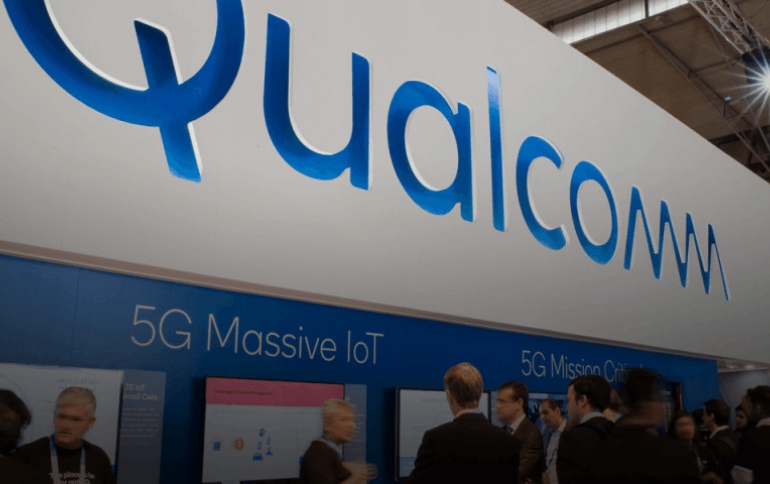
In a Win For Qualcomm, China Halts Sales of Some iPhones
Qualcomm on Monday said it had won a preliminary order from a Chinese court banning the importation and sale of several Apple iPhone models in China due to patent violations.
Qualcomm announced that the Fuzhou Intermediate People’s Court in China has granted the company’s request for two preliminary injunctions against four Chinese subsidiaries of Apple Inc., ordering them to immediately cease infringing upon two Qualcomm patents through the unlicensed importation, sale and offers for sale in China of the iPhone 6S, iPhone 6S Plus, iPhone 7, iPhone 7 Plus, iPhone 8, iPhone 8 Plus and iPhone X.
The court found Apple violated two of Qualcomm’s software patents around resizing photographs and managing applications on a touch screen. The two patents were previously found to be valid by SIPO, the Chinese patent office.
Qualcomm, the biggest supplier of chips for mobile phones, initially filed its case in China in late 2017.
Earlier this year, the same Chinese court banned the import of some of memory chip maker Micron Technology Inc’s chips into China.
"Apple continues to benefit from our intellectual property while refusing to compensate us," Don Rosenberg, general counsel of Qualcomm, said in a statement.
In a statement, Apple said its iPhones remain on sale in the country, with newer software (iOS12).
“Qualcomm’s effort to ban our products is another desperate move by a company whose illegal practices are under investigation by regulators around the world,” Apple said in its statement.
The ruling is part of a worldwide dispute between the two U.S. companies over licensing fees that Qualcomm charges for use of technology that the chipmaker says underpins all modern phone systems. Apple has argued that its former supplier unfairly leverages its position as the biggest supplier of chips for smartphones to force payment of the fees. Qualcomm has countered that Apple is using its intellectual property without paying for it and the legal cases are aimed at forcing it to lower licensing charges.
The patents in the suit, which Qualcomm said on Monday had been upheld by the Chinese patent office, are separate from those being contested in other cases in its wide-ranging legal dispute with Apple. Qualcomm has also asked regulators in the United States to ban the importation of several iPhone models over patent concerns, but U.S. officials have so far declined to do so.
Qualcomm wants to force Apple to the negotiating table in what it says is a commercial dispute. The iPhone maker has stopped paying licensing fees, Qualcomm’s largest source of profit, and no longer uses Qualcomm chips. That’s cost Qualcomm billions in revenue and the company has reported shrinking sales since 2014.
Qualcomm charges a percentage of the selling price of each handset sold regardless of whether the device is based on its chips or not. Apple contends that Qualcomm’s fee should be based on the price of the component, not the phone, a difference of hundreds of dollars per phone.
Even amid disputes and non-payments, the fees provided Qualcomm with more than half of its profit last year.
Shares of some of Apple's component suppliers fell on Monday, following Qualcomm's announcement. The suit adds another potential headwind for Apple suppliers, which have been struggling amid signs of waning demand for iPhones.





















